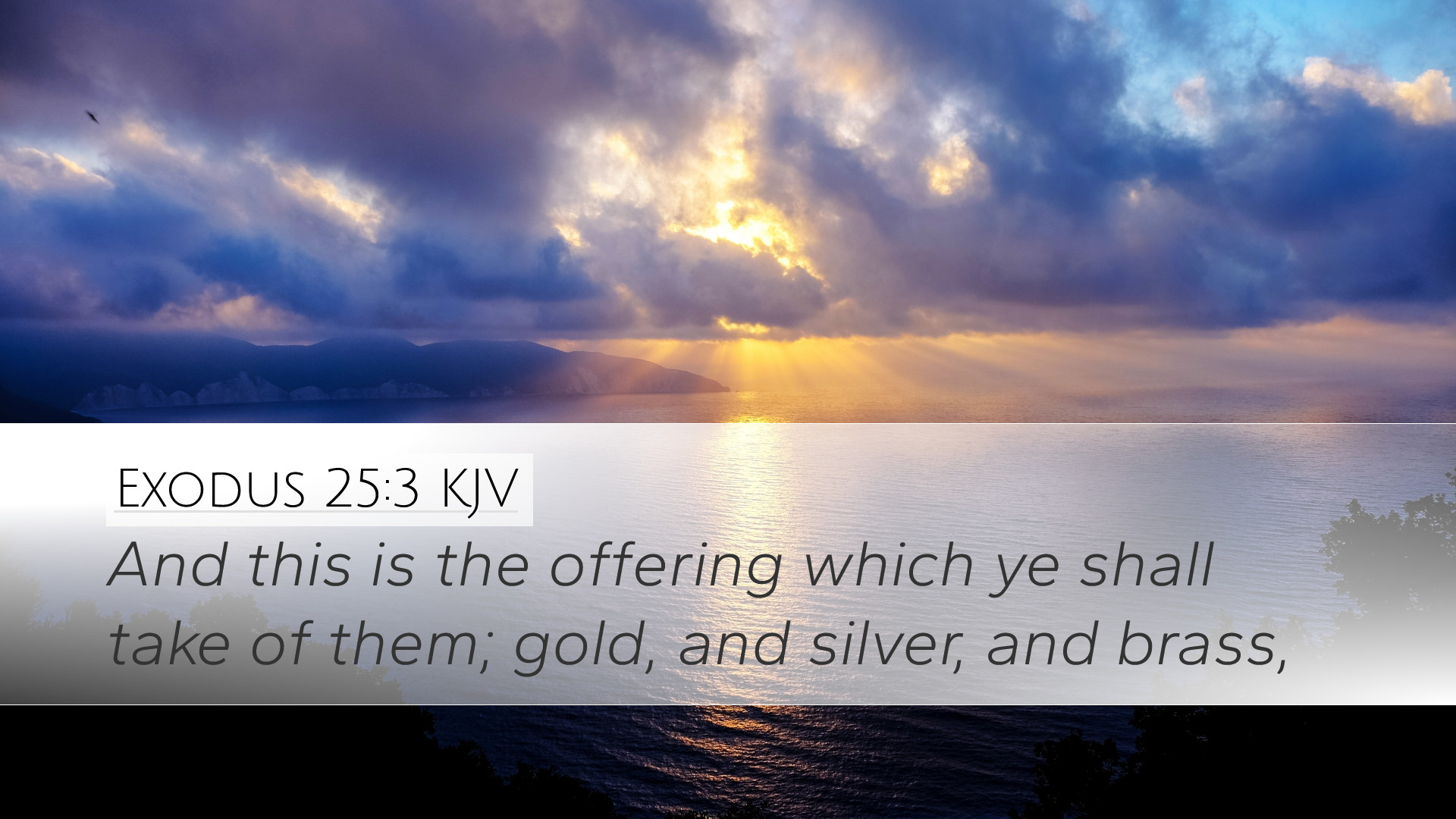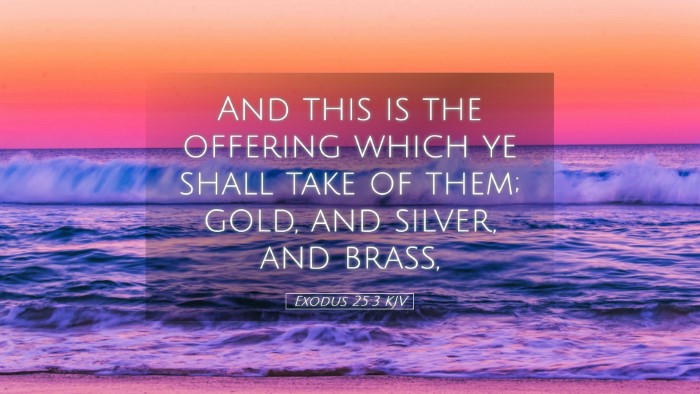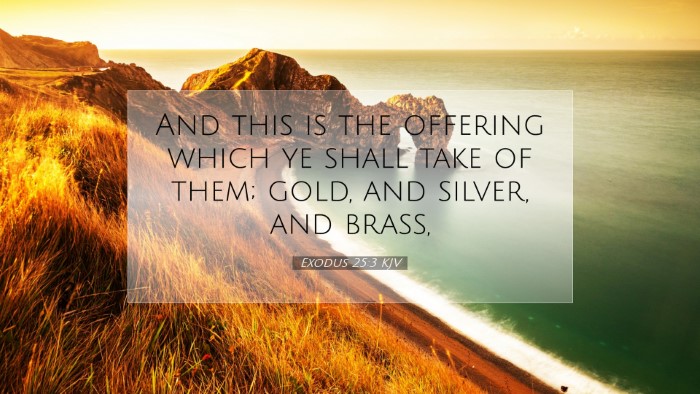Exodus 25:3 Commentary
Bible Verse: "And this is the offering which ye shall take of them; gold, and silver, and brass," (Exodus 25:3)
Introduction
This verse is a part of the broader context in which God instructs Moses on the construction of the Tabernacle, a dwelling place for God among His people. The detailed specifications underscore the importance of God's presence within the community of Israel and set a precedent for sacred offerings.
The Divine Command
The directive in Exodus 25:3 forms a foundational theology of giving within the Israelite community.
- Purpose of Offering: The offerings collected were not for common use but strictly for the service of the Tabernacle, emphasizing the sacredness of what is dedicated to God.
- Nature of Contributions: The inclusion of precious materials like gold, silver, and brass signifies that God deserves the best that the people can offer. They are to contribute out of love and reverence, not obligation.
Insights from Matthew Henry
Matthew Henry elaborates on the significance of the commanded offerings. He notes that the materials requested reflect the beauty and glory of God, as the Tabernacle is to be a testament to His holiness. Moreover, Henry points out the voluntary nature of these gifts – the people were to give willingly, which reflects a heart attitude that honors God.
Insights from Albert Barnes
Albert Barnes emphasizes the practicality and symbolism of the materials listed. He argues that these items were not only valuable but also represented the abundance of God's blessings in the lives of the Israelites. Moreover, Barnes highlights the aspect of community in this endeavor; it was a collective effort, showcasing unity in worship and service to their God.
Insights from Adam Clarke
Adam Clarke provides a detailed exposition on the significance of each material while contextualizing it within the cultural understanding of the ancient Near East. Clarke explains that metals like gold and silver were not merely financial assets but symbolized purity and the divine. He also touches on the transformative purpose of these materials – to create a space where God could dwell amongst His people, thus facilitating a relationship through rituals and sacrifices.
Theological Implications
From the insights of these commentaries, several theological themes emerge:
- The Holiness of God: The detailed requirements for offerings show that God is holy, requiring a space that reflects His purity and majesty.
- Worship and Sacrifice: Giving is an act of worship, illustrating that true devotion involves material sacrifice.
- Community in Worship: The requirements call for collective participation, illustrating the need for unity in the faith community.
Conclusion
Exodus 25:3 serves as a pivotal verse that invites believers to reflect on their contributions to God’s work. The invitation to bring forth precious materials not only demonstrates God's desire for a beautiful dwelling place but also challenges followers to examine the quality of their offerings. As pastors, students, theologians, and Bible scholars explore this text, they are reminded of the sacredness of worship and the importance of giving willingly, reflecting on both the spiritual and communal dimensions of faith in action.


